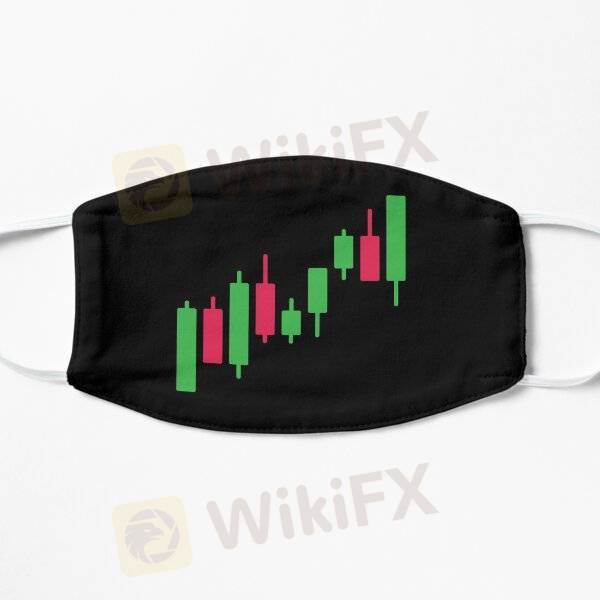
2025-02-12 04:00
業內THE IMPACT OF PANDEMICS ON FOREX MARKET
#firstdealofthenewyearastylz
Pandemics can have profound and multifaceted impacts on the foreign exchange (forex) market, influencing currency values, trading volumes, and overall market sentiment. Here are some key ways in which pandemics affect the forex market:
1. Economic Uncertainty
Pandemics often lead to significant economic uncertainty. As businesses close, consumer spending drops, and unemployment rises, the economic outlook for affected countries can deteriorate rapidly. This uncertainty typically leads to increased volatility in the forex market, as traders react to news and data releases.
2. Safe-Haven Currencies
During times of crisis, investors often seek refuge in safe-haven currencies, such as the US dollar (USD), Swiss franc (CHF), and Japanese yen (JPY). As demand for these currencies increases, their value tends to rise against riskier currencies. For example, during the COVID-19 pandemic, the USD initially strengthened as investors flocked to safety.
3. Interest Rates and Monetary Policy
Central banks may respond to the economic fallout of a pandemic by lowering interest rates or implementing quantitative easing measures to stimulate the economy. Such actions can lead to depreciation of the currency, as lower interest rates make a currency less attractive to investors seeking yield. For instance, the Federal Reserve's aggressive rate cuts during the COVID-19 pandemic influenced the USD's value.
4. Trade Balances
Pandemics can disrupt global supply chains and trade flows, affecting a country's trade balance. Countries that rely heavily on exports may see their currencies weaken if demand for their goods declines. Conversely, countries that are less affected or that can pivot to produce essential goods may see their currencies strengthen.
5. Market Sentiment and Speculation
The forex market is heavily influenced by trader sentiment and speculation. News about the pandemic, such as vaccine developments or government responses, can lead to rapid shifts in market sentiment. Positive news may lead to a rally in riskier currencies, while negative news can trigger sell-offs.
6. Geopolitical Factors
Pandemics can exacerbate geopolitical tensions, leading to further instability in the forex market. For example, trade disputes or sanctions may become more pronounced during a pandemic, affecting currency values and investor confidence.
7. Long-Term Structural Changes
In the aftermath of a pandemic, economies may undergo structural changes that can have lasting effects on currency values. For instance, shifts towards digital currencies, changes in consumer behavior, or a reevaluation of global supply chains can all influence future forex market dynamics.
Conclusion
The impact of pandemics on the forex market is complex and can vary significantly depending on the specific circumstances of each event. Traders and investors must stay informed about economic indicators, central bank policies, and global developments to navigate the volatility that pandemics can introduce into the forex market. Understanding these dynamics can help in making more informed trading decisions during such uncertain times
贊 0

Va²tyough
Sàn giao dịch
熱門討論
業內
哎,现在明白不赌就是赢啊
行情分析
美元/加元技术面
技術指標
外汇技术分析之波浪理论
業內
[活動]論交易,贏取200元話費補貼
技術指標
EZ.Fury Kite是基于趋势指标MA进行判断
技術指標
指标派是什么?
市集分類

平臺

展會

代理商

招聘

EA

業內

行情

指標
THE IMPACT OF PANDEMICS ON FOREX MARKET
 香港 | 2025-02-12 04:00
香港 | 2025-02-12 04:00#firstdealofthenewyearastylz
Pandemics can have profound and multifaceted impacts on the foreign exchange (forex) market, influencing currency values, trading volumes, and overall market sentiment. Here are some key ways in which pandemics affect the forex market:
1. Economic Uncertainty
Pandemics often lead to significant economic uncertainty. As businesses close, consumer spending drops, and unemployment rises, the economic outlook for affected countries can deteriorate rapidly. This uncertainty typically leads to increased volatility in the forex market, as traders react to news and data releases.
2. Safe-Haven Currencies
During times of crisis, investors often seek refuge in safe-haven currencies, such as the US dollar (USD), Swiss franc (CHF), and Japanese yen (JPY). As demand for these currencies increases, their value tends to rise against riskier currencies. For example, during the COVID-19 pandemic, the USD initially strengthened as investors flocked to safety.
3. Interest Rates and Monetary Policy
Central banks may respond to the economic fallout of a pandemic by lowering interest rates or implementing quantitative easing measures to stimulate the economy. Such actions can lead to depreciation of the currency, as lower interest rates make a currency less attractive to investors seeking yield. For instance, the Federal Reserve's aggressive rate cuts during the COVID-19 pandemic influenced the USD's value.
4. Trade Balances
Pandemics can disrupt global supply chains and trade flows, affecting a country's trade balance. Countries that rely heavily on exports may see their currencies weaken if demand for their goods declines. Conversely, countries that are less affected or that can pivot to produce essential goods may see their currencies strengthen.
5. Market Sentiment and Speculation
The forex market is heavily influenced by trader sentiment and speculation. News about the pandemic, such as vaccine developments or government responses, can lead to rapid shifts in market sentiment. Positive news may lead to a rally in riskier currencies, while negative news can trigger sell-offs.
6. Geopolitical Factors
Pandemics can exacerbate geopolitical tensions, leading to further instability in the forex market. For example, trade disputes or sanctions may become more pronounced during a pandemic, affecting currency values and investor confidence.
7. Long-Term Structural Changes
In the aftermath of a pandemic, economies may undergo structural changes that can have lasting effects on currency values. For instance, shifts towards digital currencies, changes in consumer behavior, or a reevaluation of global supply chains can all influence future forex market dynamics.
Conclusion
The impact of pandemics on the forex market is complex and can vary significantly depending on the specific circumstances of each event. Traders and investors must stay informed about economic indicators, central bank policies, and global developments to navigate the volatility that pandemics can introduce into the forex market. Understanding these dynamics can help in making more informed trading decisions during such uncertain times
贊 0
我也要評論
提問
0條評論

還沒人評論,趕緊搶佔沙發

提問
還沒人評論,趕緊搶佔沙發